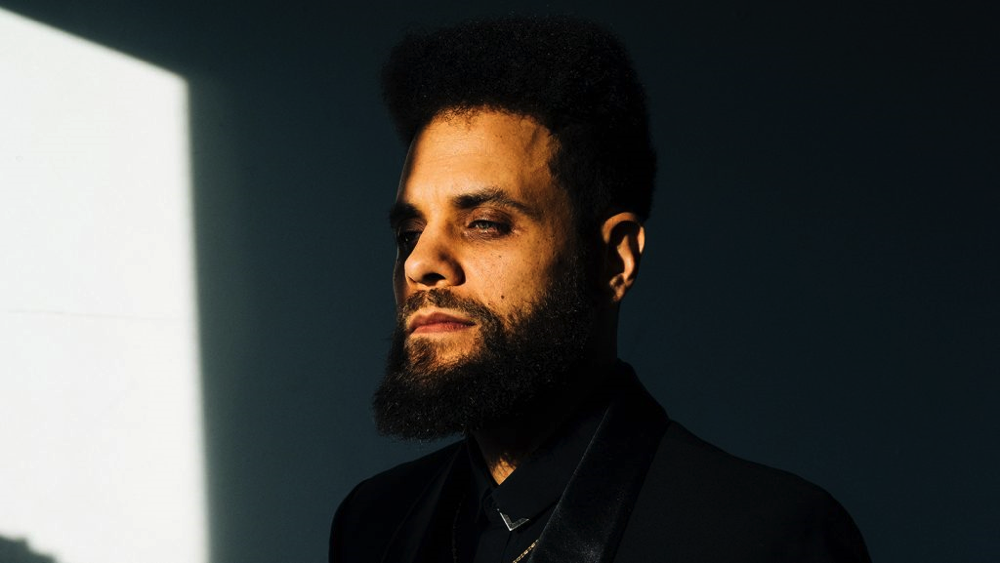|
Getting your Trinity Audio player ready…
|
The human brain is incredibly powerful. It controls every function of our bodies, allows us to reason, and permits us to both create and appreciate art. To do so, it uses 100 billion neurons, each of which fires around 200 times every second. Given its necessary complexity, it should come as no surprise how frequently the organ malfunctions. According to the US Center for Disease Control, one out of every five adults exhibit mental illness and one-fifth of these are severe cases. Despite its prevalence, mental health still remains a controversial and under-discussed issue in many societies. With I THINK I’M GOOD, his first release for Gilles Peterson’s Brownwood Recordings, drummer Kassa Overall tries to shatter these taboos.
In many ways, music is an ideal medium for addressing the topic both due to its ability to express emotions as well as its deep connection to the underlying subject. For centuries, scientists have examined whether a correlation exists between creativity and mental illness. One recent study suggests that up to 73% of musicians may suffer from at least one psychological disorder of some kind. These issues are generally only further compounded by the economic difficulties faced by many musicians’ choice to make a career out of bringing their art to the public as well as, in some cases, substance abuse. While himself practicing clean living – being both drug and alcohol free as well as a vegan – Overall also addresses some of these sometimes related issues in I THINK I’M GOOD, along with his own struggles with mental health, which at one point included a manic episode, hospitalization, and years of medication.
Like its predecessor, 2019’s Go Get Ice Cream and Listen to Jazz, at its core this year’s release is a mix of hip-hop and jazz, the hybridization of these two forms becoming fairly commonplace. However, Overall presents a new perspective on the subject matter, one which is inherently interesting and also allows him to better express his overarching story of one struggling with psychological issues. This is done primarily with the use of the synthesizer, an instrument that interrupts even the most tranquil of surroundings with unexpected jarring, arbitrary, and disturbing slashes reflective of an intrusive thought or a panic. Various moans and cries are also interspersed throughout. Both are intended to be reflective of someone simultaneously trying to come to terms with their condition as well as struggling to stand tall against it.
The lyrics further underscore this view as well. On “Visible Walls” the phrases “I hope they let me go tonight… I pray that you can sleep tonight” reflect a desire to be free of not just the physical walls of a hospital but the underlying invisible ones of the speaker’s illness. By “Please Don’t Kill Me”, he is pleading for his thoughts not to attack him (“Please don’t kill me in your sleep”) only for them to ignore his requests and to taunt and torture him on “Find Me.” In these moments he begins to feel trapped by his psyche (“Show me a prison. Show me a jail”) and reflects back on how it has clouded his entire life thus far (“I was a joyous child, if I ever was a child”). However, by “Got Me A Plan”, the narrator expresses an affirmative decision to do all he can to live his life to the fullest despite his condition and to adopt a course of action to better overcome it… In his case, medication, treatment, and cleaner living.
As can be expected given its subject matter, I THINK I’M GOOD is deeply personal. The method by which Overall produced this music – primarily with a skeletal mobile studio (laptop, a simple audio interface, and microphone) – further adds to the aesthetic. Sometimes the end result is even too close for comfort. To keep this feeling of confidentiality from overwhelming the listener’s experience, a number of familiar artists make guest appearances. The list of such contributors reads like a who’s who of modern jazz including Vijay Iyer, Aaron Parks, Craig Taborn, Brandee Younger, Theo Croker, Joel Ross, Sullivan Fortner, Joe Dyson, and Sonnymoon’s J Hoard, but also features up and coming musicians Morgan Guerin, Julius Rodriguez, and Melanie Charles, to further help ground the music.
In all, I THINK I’M GOOD is a brave and powerful album with an equally compelling message. It is not always the easiest listen, but given its main topic, it needs to be somewhat difficult to access. Upon repeat listening, connections begin to form as well as a relationship between the listener and the artist. As various grooves become increasingly evident, the listener starts to also understand the narrator and their condition better. For an album focused on trying to remove the stigma around mental health issues, it does a fantastic job.
This review was originally published on Nextbop on January 8, 2020.







Leave a Reply